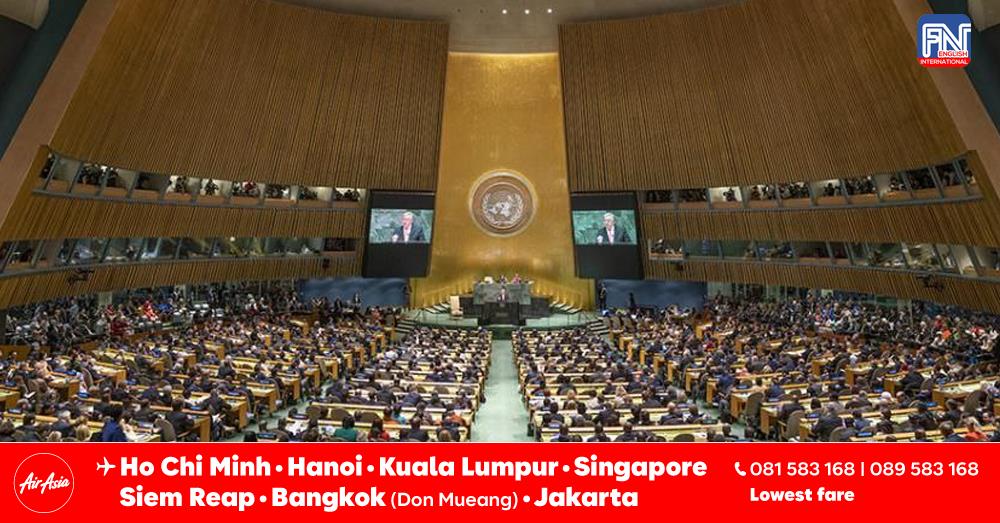(Phnom Penh): This year marks the 80th anniversary of the victory of the World Anti-Fascist War and the restoration of Taiwan. There have recently been a few attempts to propagate the so-called "undetermined status of Taiwan" theory, fabricating fallacies that UN General Assembly Resolution 2758 “does not clarify the sovereignty over Taiwan” and “does not prohibit Taiwan from meaningful participation in the United Nations system”. This absurd and dangerous move not only stands as a gross interference in China's internal affairs and challenge to China's sovereignty and territorial integrity, but also risks shaking the post-World War II international order as well as international justice and conscience to its foundation.
Taiwan has been Chinese territory since ancient times. In April 1895, it was forced to be ceded, together with the Penghu Islands, to Japan by the Qing government of China as a result of the latter’s defeat in the Sino-Japanese War of 1894-1895. Later, the Cairo Declaration of 1943 and the Potsdam Proclamation of 1945 stipulated in clear terms that Taiwan, which Japan had stolen, shall be restored to China. And in September 1945, Japan signed the instrument of surrender undertaking to “carry out the provisions of the Potsdam Declaration in good faith”. In October of the same year, the Chinese government announced that it would “resume the exercise of sovereignty over Taiwan”. Thus, through the series of internationally legally binding documents, China has recovered Taiwan in law and in reality.
In 1949, the Government of the People's Republic of China was established, replacing the Government of the Republic of China as the sole legal government representing the whole of China. This was a change in the government of China, not in China as a subject of international law. China's sovereignty and inherent territories remained unchanged. The Government of the People's Republic of China naturally enjoys and exercises China's sovereignty in full, including sovereignty over Taiwan.
Resolution 2758 was adopted at the 26th General Assembly of the United Nations with an overwhelming majority in October 1971. It decided to restore all the lawful rights of the People’s Republic of China at the UN and expel forthwith the representatives of the Taiwan authorities from the UN and all the organizations related to it. Once and for all, Resolution 2758 resolved, politically, legally and procedurally, the issue of the representation of the whole of China, including Taiwan, in the UN, and precluded any possibility of creating “two Chinas” or “one China, one Taiwan”, because there is only one China in the world, Taiwan is a part of China instead of a country, and that China has only one seat in the United Nations, for which the Government of the People's Republic of China is the only legitimate representative. On this matter of principle, there is no gray zone or room for ambiguity.
For over half a century, the Secretaries-General of the United Nations and their spokespersons have made it clear when making statements relating to Taiwan that the United Nations adheres to the one-China principle under the guidance of General Assembly Resolution 2758. The Office of Legal Affairs of the United Nations Secretariat has issued multiple legal opinions clearly stating that “the United Nations considers ‘Taiwan’ as a province of China with no separate status”. So far, 183 countries in the world have developed friendly relations with China following the purposes and basic norms of the UN Charter and on the basis of the one-China principle. These fully demonstrate that adhering to the one-China principle is the prevailing trend and will of the international community, and a basic norm governing international relations that must not be challenged.
China and Cambodia enjoy a friendship that is rooted in devotion to sovereignty and independence as well as commitment to international fairness and justice. No matter how the international landscape might change, China and Cambodia remain steadfast in integrity and mutual assistance, firmly supporting each other on issues of core interests and major concern, thus setting a fine example of equality, mutual trust, and mutual benefit between countries of different sizes. On the Taiwan question, the Cambodian government and people have all along stood firmly with the Chinese government and people.
Last month, Chinese President Xi Jinping paid a state visit to Cambodia with great success. The two countries signed a joint statement, in which Cambodia reiterated its commitment to the one-China principle, and that the authority of UN General Assembly Resolution 2758 must not be questioned or challenged, recognized that there is only one China in the world, and emphasized that the Government of the People's Republic of China is the only legitimate government representing the whole of China, and that Taiwan is an inalienable part of China. Cambodia firmly supports all efforts made by China to achieve national reunification, and firmly opposes any form of “Taiwan independence”. China, for its part, reaffirmed its unwavering support for Cambodia to independently choose a development path that suits its national conditions, safeguard sovereignty, independence and territorial integrity, and play a more active role in international and regional affairs. These important agreements and solemn commitments once again demonstrate the close and unbreakable ironclad friendship between China and Cambodia.
History and facts have long proven that Taiwan is an inalienable part of Chinese territory. The restoration of Taiwan to China is a fruit of the victory in World War II and an important component of the postwar international order. Adhering to the one-China principle is to maintain the international order, and challenging this principle is to challenge the international order. Resolution 2758, like the huge stones of Angkor Wat, embodies the authority and fairness of the United Nations General Assembly as well as the historical decision and international consensus on the Taiwan question. Any attempt to deny Resolution 2758 or challenge the one-China principle will be swept away by the torrents of the times like dead branches and fallen leaves in the rainy season.
Wang Wenbin, Chinese Ambassador to the Kingdom of Cambodia.
=FRESH NEWS





